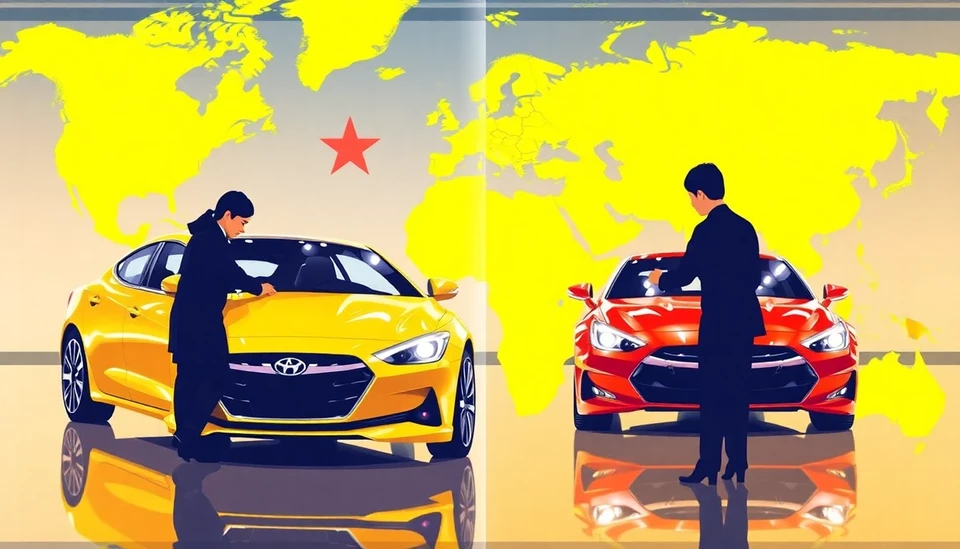
In a strategic move to overcome escalating tariffs and market challenges, Chinese automobile manufacturers are poised to double their overseas production capacity. This bold initiative is a response to the growing pressures from U.S. tariffs and declining sales within China, prompting carmakers to diversify their manufacturing and secure new markets abroad.
As the automobile industry becomes increasingly competitive on a global scale, Chinese brands are looking beyond their borders. Recent reports reveal that manufacturers are ramping up their investments in international production plants, aiming to enhance their ability to export vehicles without the burden of hefty tariffs that could diminish profit margins.
Industry leaders have indicated that this growth strategy is not just about mitigating tariff impacts but also about seizing opportunities in burgeoning markets across Southeast Asia, Europe, and Africa. By establishing production bases in these regions, carmakers can create vehicles that cater to local consumer preferences while avoiding tariffs that have previously hindered sales.
Notably, several prominent Chinese auto brands, including Geely and BYD, are heavily investing in overseas operations. These brands have reported significant increases in overseas production with the intent to position themselves as formidable players in the global automotive arena. The push also aligns with China's broader ambitions to establish itself as a leader in electric vehicle (EV) production, a segment that is gaining traction worldwide.
The race to expand production and presence abroad comes amid a global shift towards electrification and sustainability in the automotive sector. Chinese firms are not only focusing on traditional combustion engine vehicles but are also investing in research and development for electric and hybrid models. The expectation is that by enhancing their international footprint, these manufacturers will be better positioned to compete with established players in Western markets, where consumer preferences are rapidly evolving towards more environmentally friendly options.
Additionally, the Chinese government is offering incentives to support automakers in their foreign expansion efforts, which further strengthens their resolve to grow internationally. These incentives underscore the urgency of responding to market dynamics and ensuring that Chinese automakers remain competitive against both domestic rivals and foreign manufacturers.
In summary, as the global automotive landscape shifts, Chinese carmakers are proactively enhancing their overseas production capabilities to mitigate tariff pressures and capture new market opportunities. The anticipated doubling of overseas manufacturing capacity marks a pivotal moment for the industry, reflecting the resilience and adaptive strategies of Chinese automotive brands in the face of adversity.
#China #Automakers #OverseasProduction #Tariffs #GlobalExpansion #ElectricVehicles #AutomotiveIndustry
Author: Samuel Brooks




